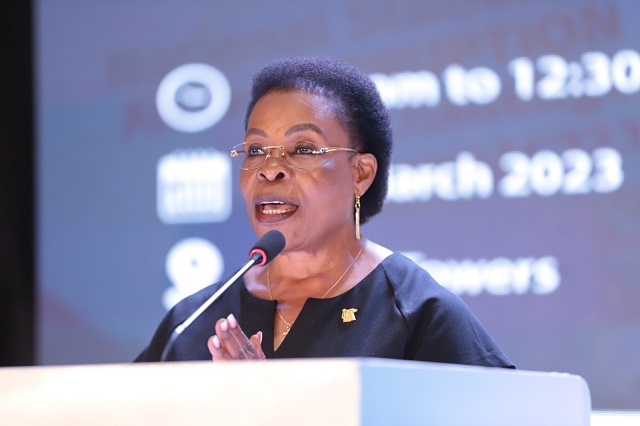
Essay 4 of 7: How Uganda Forgot Its Citizens
COMMENT | Gertrude Kamya Othieno | There was a time when corruption in Uganda caused embarrassment. Today, it invites laughter, shrugs, or casual acceptance. From boda boda stops to boardrooms, the phrase “olina kaki”, (give me something small) echoes with neither shame nor surprise. Corruption has not only become systemic; it has become cultural.
Enjawulo, a term that once meant a commission or difference in a deal, now describes the everyday bribe, the token expected to move files, unlock services, or speed up any public process. It is part of the language of life. If you want a national ID, you pay. If your child is admitted to school, you pay. If you want justice in court, you definitely pay. The expectation is so deeply ingrained that refusal is seen not as integrity but as ignorance.
This isn’t simply a case of individual bad actors. It is the logical outcome of decades of civic erosion, first under colonialism, where extractive rule trained subjects to obey and improvise, and then under post-independence systems that replaced civic duty with political patronage. In a society where education about rights is absent, public trust is low, and service delivery is patchy, people fall back on transaction. The government becomes a vending machine—except it only works if you insert a “facilitation fee.”
Bribery has become so routine that language itself conceals its moral weight. People don’t say “I paid a bribe”—they say “I appreciated them,” “I gave lunch,” or “I added transport.” The words are soft, even affectionate. The act becomes normalised and, therefore, invisible.
Even more troubling is that this culture of corruption is rationalised from both ends. Public officials often justify taking bribes by pointing to low salaries, delayed promotions, or the pressure to support extended families. Citizens justify paying them because “it’s the only way anything gets done.” And so, both sides participate in a silent contract of complicity.
Bribery has become so routine that language itself conceals its moral weight. People don’t say “I paid a bribe”—they say “I appreciated them,” “I gave lunch,” or “I added transport.” The words are soft, even affectionate. The act becomes normalised and, therefore, invisible.
The consequences are devastating. Services meant to be free become monetised. The poorest are excluded, while those with resources are fast-tracked. Merit is devalued. Trust in institutions crumbles. And worst of all, the moral compass of a generation begins to spin wildly. Children watch as their parents pay off teachers, nurses, and policemen, and they learn the lesson: rules are flexible, and right is negotiable.
In some ways, corruption has become a civic ritual. It replaces accountability with familiarity. You don’t file a complaint – you call someone. You don’t wait in line – you “talk to the right person.” You don’t follow the law—you follow the network. The state is no longer a guarantor of fairness; it is a marketplace of favours.
But this isn’t just about money. It’s about identity. When Ugandans refer to public resources as “their things” (byaabwe) as in belonging to the politicians or powerful – they are acknowledging a truth: that the average citizen does not feel entitled to what is public. They feel lucky to receive what is already theirs. That is not just corruption. That is a civic tragedy.
The question, then, is no longer whether corruption exists but whether it can be unlearned. And, unlearning begins not in headlines or arrests but in rebuilding the idea of public service, starting from the ground up.
****
 Gertrude Kamya Othieno | Political Sociologist in Social Development (Alumna – London School of Economics/Political Science – LSE) | Affiliated to Global People’s Network (GPN) – A Socio-Cultural Movement | Email – gkothieno@gmail.com
Gertrude Kamya Othieno | Political Sociologist in Social Development (Alumna – London School of Economics/Political Science – LSE) | Affiliated to Global People’s Network (GPN) – A Socio-Cultural Movement | Email – gkothieno@gmail.com
 The Independent Uganda: You get the Truth we Pay the Price
The Independent Uganda: You get the Truth we Pay the Price



